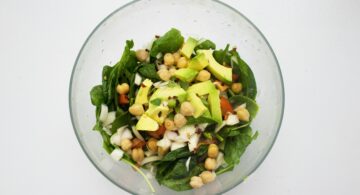Clear Up Tinnitus with Food
I have some great news for those who suffer with that annoying buzzing or ringing in the ears. Clearing up tinnitus really can be as simple as eliminating certain foods!
Millions of Americans are plagued by tinnitus, but most do not recognize a direct connection between their affliction and the foods they eat. Some of the most common food or additive culprits that trigger tinnitus are…
MSG
Monosodium Glutamate (MSG) is a flavor enhancer common in most processed foods and a staple in oriental foods. It is an excitotoxin, which causes neurons in the brain to “excite” until their death. Putting it plainly, MSG kills neurons in your brain. MSG is also tied to migraine headaches and allergic reactions.
Artificial sweeteners
The artificial sweetener aspartame (Nutrasweet or Equal) acts nearly identical to MSG in the brain. Aspartame is also an excitotoxin, speeding neurons to their death. Other chemical-based sweeteners like saccharin (Sweet and Low) and sucralose (Splenda) can also cause allergic responses that can result in tinnitus, plus a whole host of other health issues.
Sugar
Refined sugar is an obvious contributor to high blood sugar levels in the body. According to a 1984 study (1), 82% of the study participants with inner ear problems also had elevated blood sugar levels. Other studies have shown that 84% to 92% of those who suffer with tinnitus also have a disorder called hyperinsulinemia (2) Hyperinsulinemia is also known as prediabetes or insulin resistance. It is typically caused by a heavy daily intake of carbohydrates and sugar. Avoid sugar at all costs if you having ringing in the ear!
Caffeine
Caffeine’s principal problem with regard to tinnitus is the restriction of blood flow and elevated blood pressure. Most doctors recommend limiting your caffeine intake as a general rule anyway. In the case of tinnitus, caffeine can reduce the flow of blood to the head and ears – constricting the capillaries and aggravating your symptoms.
Hydrogenated oils
These unnaturally saturated fats increase cholesterol deposits in the arteries. These deposits inhibit blood flow, setting the stage for tinnitus. Adequate blood flow maintains healthy cells and removes toxins from the inner ear.
The Plague of Oriental Foods
I really enjoy oriental food. Whether it is Chinese, Thai, Korean, or Vietnamese – I love it all. Unfortunately, most oriental food contains at least one of the above listed “tinnitus-causing” ingredients.
Years ago I spent 2 summer months in Thailand. I can still recall the sites and the wonderful smells of the street foods, which I adored. Many of those that traveled with me would hit up the local McDonalds or KFC (Yes, they have McD’s and KFC in Thailand. Crazy!) Not me! I became addicted to trying all the different exotic foods available. I noticed, however, that I was getting frequent dull headaches. I would also hear “noise” whenever I was in a silent room. I attributed it to the stress of traveling and adjusting to a new time zone. But, there was another contributing factor I was unaware of at the time.
While in Thailand, Som Tom was my all time favorite dish. I ate it nearly every day. It was a green papaya salad that had a salty, sweet and sour dressing with a kick of Thai pepper. They make the salad fresh each order in a mortar and pestle. I wanted to be able to replicate it when I returned to the States so I began to observe how they made it. I recognized all the ingredients except a white powder they sprinkled in at the end. I knew it wasn’t salt, so I asked my Thai friend what it was. She said it was a special spice that made all food taste better. It was at that moment that I realized it was MSG. From then on, I had them leave the “special spice” out. They believe it is harmless and always looked confused by my request, but I knew better.It wasn’t long before the headaches and the tinnitus ringing stopped. I took note of the correlation and have never knowingly consumed MSG since.
Thankfully, my reaction to MSG was mild compared to most. But, I still go out of my way to avoid MSG. The best way to do that is by preparing my own oriental dishes rather than eating out.
I am going to share with you my two favorite oriental recipes. The first is a version of Som Tom, my favorite dish from Thailand. Som Tom traditionally contains green papaya (unripened papaya), but it is very hard to come by. If you’re lucky enough to find it, then by all means use it. I use cucumber instead because it has a similar texture and you can buy it anywhere.
Som Tom is very good for you. My Thai friend Joy would always say that it makes you “slim.” This is because it contains virtually no carbohydrates, no fat and has very few calories. You can even make it “sugar free” by substituting stevia for the sucanat.
Thai Cucumber Salad
Ingredients:
- 2 cups of shredded cucumber or green papaya
- ½ cup of shredded carrots
- 5 cherry tomatoes cut into halves
- 1 clove of garlic minced
- 1 lime juiced
- 1 ½ tbsp fish sauce
- 1 ½ tbsp sucanat (for sugar free use 1/2 packet of Nu Naturals stevia)
- 1 Thai chili chopped (less or none according to taste)
- 2 tbsp of peanuts (optional)
Directions:
- Mix the lime juice, fish sauce, sucanat (or stevia), chilies, and garlic in a bowl. Although traditionally made with a mortar and pestle, you can mash the garlic and chilies with a fork to release their flavor.
- Now add the shredded cucumber, carrots and tomatoes. Toss well. Top with the peanuts and serve.
Korean Lettuce Wraps with Pineapple Salsa
My husband begs for this dish. Actually, we are making it tonight per his request. It’s a great dish for men, because they typically want their portion of meat. Since the marinade is made from scratch, there are no hidden tinnitus triggers like MSG or refined sugar. Sesame oil adds such a great flavor and is a healthy unsaturated fat.
Also, there are three parts to this recipe: preparing the Korean BBQ beef, then the pineapple salsa to go with it, and finally wrapping it all together with lettuce leaves. If you choose to include steamed rice in this dish, you’ll want to prepare it beforehand as well.
Korean BBQ Beef
Ingredients:
- 1/2 cup of Braggs Liquid Aminos (or fermented soy sauce like Shoyu)
- 3 tbsp of Sesame Oil
- 3 tbsp of Sesame Seeds
- 4 cloves of garlic, minced
- 1 packet of Nu Naturals Stevia or 3 tbsp of honey
- Splash of rice wine vinegar
- 1 lb of beef sliced thin (any cut of steak will work)
Directions:
- Mix all the above ingredients together and marinate the beef for at least 2 hours.
- Grill to your preferred temperature for red meat.
Prepare the Pineapple Salsa
Ingredients:
- 1 pineapple chopped
- 1/3 cup cilantro chopped
- 4 green onions choppe
- ½ jalapeño seeded and chopped
- ½ lime juiced
- Dash of salt
Directions:
We like to grill our pineapple beforehand. You don’t have to do this, but it adds a nice grilled flavor and sweetness to the pineapple. We cut the pineapple into round slices, grill until slightly browned and then chop.
Toss all the above ingredients in a bowl. The flavor gets better as the night goes on. It’s also fantastic with tortilla chips. Be careful – it’s addicting!
Wrapping it all up
Ingredients:
You need two more things to “wrap” this dish all together:
- Rice (optional, skip if you want to go low carb)
- Boston Bibb or Butter Lettuce
Directions:
I typically let everyone build his or her own wraps. Start with the lettuce, then add the rice, beef, and top with the pineapple salsa. Wrap it like a burrito and eat! My mouth is watering knowing I’m just a couple hours away from indulging in this myself!
You really can “eat” your way to tinnitus relief. Cooking from scratch and avoiding tinnitus triggers is the best way to do just that.
I hope you enjoy my recipes! I would love to here about any modifications – or trial and error attempts!
(1) May 1984 issue of “Acta Oto-Laryngologica”
(2) http://www.ncbi.nlm.nih.gov/pubmed/12970590




























